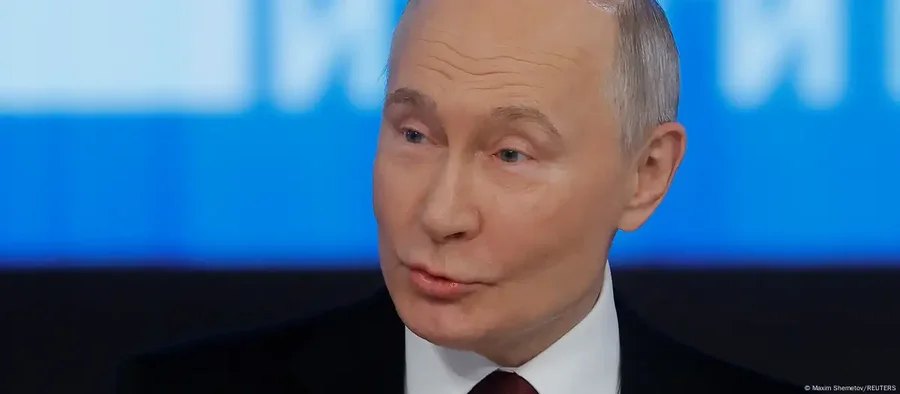
Putin began 1999 as a reformer but eventually developed into a warlord. How have the EU and NATO relations developed with Putin's Russia?
In August 1999, Vladimir Putin was appointed Prime Minister of the Russian Federation. At the end of 1999/2000 he succeeded the ailing president Boris Yeltsin. As soon as he took office, Putin declared that Russia was and will remain a great power. In Europe he was seen more as a reformer who was thought to reorganize the chaotic Russia of the 1990s.
In June 2001, US President George W. Bush called Putin "reliable and straightforward" after their high-level meeting. Bush, the head of state of NATO's leading power, says he also looked into his soul.
In September 2001, Vladimir Putin offered Europe a security partnership with Russia during a speech to the Bundestag. He questioned the role of the leading Western power, the US. The head of the Kremlin did not rule out Russia's future membership in NATO and the EU.
The EU and Russia agreed on various funding programs and cooperation. A "strategic partnership" was sought. NATO opened an office in Moscow. Russia opened a representative office in NATO in Brussels. A special NATO-Russia Council discussed strategic issues as well as the future voluntary admission of Central and Eastern European states to the Alliance.
As one of the EU's main suppliers of oil and gas, Russia does good business with Europe. German Chancellor Gerhard Schröder called Putin a "flawless democrat", despite Russia's well-known crackdown on opposition and press freedom. After his term as chancellor, Schröder took lucrative positions in Russian state-owned energy companies.
Putin's turn
In 2006 at the Munich Security Conference, Vladimir Putin initiated a change. He complained that the West is not accepting Russia as a great power. He described NATO expansion as a breach of his word. Promises by NATO states not to move towards Russia's border are being ignored, he said. However, in 1997, Russia agreed to enlargement in an agreement with NATO.
Disarmament agreements were terminated. Russia strongly criticized the planned US missile defense. Vladimir Putin was furious when Ukraine and Georgia were promised to join the Western alliance at the NATO summit in April 2008.
In August 2008, Putin demonstrated his military might to Europeans. He intervened in a conflict in Georgia and brought parts of South Ossetia and Abkhazia under Russian control after a brief war.
In 2013, the EU Commission was still talking about creating a shared "economic and human space" from Lisbon to Vladivostok with Putin's Russia - as a long-term vision.
Putin's wars
Following the expulsion of Russia's friendly president from Ukraine in the spring of 2014 and the Maidan democratic revolution, Russian President Putin attacked Ukraine. He annexed the Crimean Peninsula in violation of international law and brought parts of eastern Ukraine under his control with pro-Russian separatists.
The West reacted with the first sanctions and tried to mediate. Chancellor Angela Merkel and French President Francois Hollande brokered the Minsk agreement, which aimed at peace. That never happened, but it "served to give Ukraine time to become stronger," as Chancellor Merkel later said.
Relations deteriorated rapidly, but Russian energy imports continued. In European perception, Putin was increasingly turning into an autocratic ruler. In 2021, the EU spoke of a "negative spiral" in relations between them.
NATO Summit 2008 in Bucharest, Putin, Bush, Merkel and others at a table NATO Summit 2008 in Bucharest, Putin, Bush, Merkel and others at a table
In March 2022, shortly after the large-scale attack on Ukraine by Russian troops, US President Joe Biden saw Putin as a ruthless "dictator, a war criminal, a murderer". From then on, NATO viewed Putin's Russia as "the greatest threat to peace in Europe," the new old enemy in the East.
The EU is imposing sweeping sanctions on Russia and trying to cut off oil and gas supplies as soon as possible. Even two years after the start of the war, this has not yet been fully achieved. Russian gas continues to flow to Europe. Trade with Russia is shrinking, but many European companies still do business in Russia. The food, pharmaceutical and chemical industries are not affected by the sanctions.
25 years after Putin took office, NATO is preparing for a new arms race. Countering Russian aggression is now the main task of the alliance. /DW/ (A2 Televizion)











